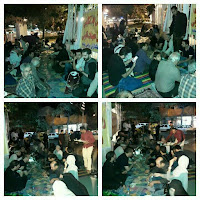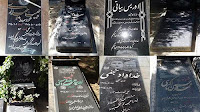According to Edmonton's police Sunday Oct. 1, a man who stabbed a police officer with a knife and deliberately plowed into pedestrians on Edmonton's busiest downtown strip is being investigated for "acts of terrorism".
A 30-year-old man is in custody following a high-speed chase just before midnight through streets filled with bar patrons and football fans. The chase ended only after a white U-Haul van the man was driving struck four pedestrians and flipped on its side. A black ISIS flag was seized from a car where the police officer was attacked. Justin Trudeau has condemned this terrorist attack.
******
According to Reuters, Canada which has been accused of sharing intelligence that led to the torture of prisoners abroad, on Monday Sept. 25 issued rules to prevent its security agencies from disclosing or requesting information from other countries if it would result in mistreatment. The rules also prohibit Canada’s spy agency, border services agents and federal police from using information likely obtained through torture, unless it is necessary to prevent death or significant injuries. The directions replace 2011 rules put in place by the previous Conservative government that was replaced by Prime Minister Justin Trudeau’s Liberals in 2015. Reuters added: The Liberals appear to have publicized the rules to repair the government’s reputation, according to experts who noted that it is unusual for a country to publicly disclose such guidelines. The Conservative government in 2007 apologized and paid C$10.5 million to compensate Maher Arar, who was deported to Syria by U.S. agents after Canadian police mistakenly labeled him an Islamic extremist.
Earlier this year, Canada apologized to three Canadian men of Arab descent who said they had been tortured in Syria and blamed Canadian secret services for their ordeal.
******
 Voting started on Monday Sept. 25 in an independence referendum organized by the Kurdish Regional Government (KRG) in northern Iraq. The people of Kurdistan-Iraq voted in favour of independence in high numbers. Iranians in Kurdistan-Iran in different cities celebrated the referendum in Iraq but faced attack and arrest by the security forces. as such a woman named Ronak Aghaii was arrested for hoisting the flag of Kurdistan in a gathering in Mahabad. Her family have no news of her fate. The United States is not recognizing Kurdistan's referendum and tension is high for the Iranian regime, Turkey and other neighbors were against the referendum from the beginning. According to the Green Party of Iran statement Sept. 24, the Kurdistan region of Iraq has practically been autonomous and separated from the chaos in Iraq. Making the independence official by holding a referendum is a way for Kurdistan to continue its tranquility, economic growth, and prosperity. It also serves as a defense mechanism against the perils of the Shiite groups created by the Quds Force(belonging to Iranian regime) and the central government of Iraq. Iraq is a country under the influence of the Iranian mullahs.
Voting started on Monday Sept. 25 in an independence referendum organized by the Kurdish Regional Government (KRG) in northern Iraq. The people of Kurdistan-Iraq voted in favour of independence in high numbers. Iranians in Kurdistan-Iran in different cities celebrated the referendum in Iraq but faced attack and arrest by the security forces. as such a woman named Ronak Aghaii was arrested for hoisting the flag of Kurdistan in a gathering in Mahabad. Her family have no news of her fate. The United States is not recognizing Kurdistan's referendum and tension is high for the Iranian regime, Turkey and other neighbors were against the referendum from the beginning. According to the Green Party of Iran statement Sept. 24, the Kurdistan region of Iraq has practically been autonomous and separated from the chaos in Iraq. Making the independence official by holding a referendum is a way for Kurdistan to continue its tranquility, economic growth, and prosperity. It also serves as a defense mechanism against the perils of the Shiite groups created by the Quds Force(belonging to Iranian regime) and the central government of Iraq. Iraq is a country under the influence of the Iranian mullahs.******
Reuters reported on Oct. 1, that the White House said on Saturday it had ordered that Iran, Venezuela and four African nations be added to a US list of countries accused of failing to crack down on human trafficking, a step that further isolates them from the United States.
The White House said it also was increasing restrictions on North Korea, Eritrea, Russia and Syria, which already were on the list, by constraining them from engaging in educational or cultural exchange programs with the United States.
In addition, President Donald Trump’s administration instructed the U.S. executive director of the International Monetary Fund and U.S. executive directors at other multilateral development banks to vote against extending loans or other funds to North Korea, Russia and Iran for fiscal year 2018, which begins today. Under a 2000 U.S. law called the Trafficking Victims Protection Act, the United States does not provide non-humanitarian, non-trade-related foreign assistance to any country that fails to comply with minimum standards for eliminating trafficking and is not making efforts to do so.
The White House said in a notice that Iran, Venezuela, the Democratic Republic of the Congo (DRC), Equatorial Guinea, South Sudan and Sudan had been added to the list of countries subject to these restrictions for the new fiscal year. The move came six days after Trump included Venezuela and Iran on a list of eight countries targeted for travel restrictions to the United States. The restrictions on Venezuela focused on government officials who the Trump administration blamed for the country’s slide into economic disarray. The travel ban on Iranians was broader.
That travel ban list lifted previous restrictions on citizens from Sudan.
******
A number of female students of Hamedan’s Bou-Ali Sina University in Iran staged a gathering on September 24, to protest the deficient state of the girls’ dormitories. Female students said their living conditions were below the minimum standards and in a temporary state. The girls' dormitories of Kowsar and Shabnam are among the places whose conditions have caused protest in Bou-Ali Sina University.
******
Iranian regime's Security forces arrested Leila Mirghafari on Tuesday, September 26, and transferred this civil rights activist to an unknown location. Ms. Mir-Ghaffari had been arrested earlier this year in May. She was also arrested in 2015 along with several other civil activists following a protest rally outside Evin Prison. They were first transferred to the Prosecutor’s Office at Evin and subsequently to the notorious Qarchak Prison in Varamin. She was also summoned and interrogated in October 2016 for participating in the memorial ceremony for Reyhaneh Jabbari held in Behesht-e Zahra Cemetery.
******
Women actively participated in protest gathering in Tehran-Iran on the morning of September 27, in support of imprisoned unionist Reza Shahabi, head of the Syndicate of the Bus Company of Tehran and Suburbs. The protesters demanded his immediate release. Reza Shahabi has been on hunger strike for more than 40 days in protest to prison conditions.
******
Students of Jondishapur School of Dentistry in Ahwaz-Iran held a protest rally on Tuesday, September 26. This was the second time the female students in this university were protesting the lack of educational space. The protest was held in front of the central building of the university.
******

Women staged simultaneous protest rallies in seven cities of Tehran, Mashhad, Shiraz, Isfahan, Ahwaz, Bushehr and Malayer in Iran on Tuesday, September 26.
The protesters have lost their property looted by government financial institutions. The protesters in Mashhad were confronted by the State Security forces. They continued their gatherings and refused to stop the protest.
******
Saudi King Salman on Tuesday ordered that women be allowed to drive cars, state media said. Saudi Arabia has been widely criticized for being the only country in the world that bans women from driving, despite ambitious government targets to increase their public role, especially in the workforce.
The royal decree ordered the formation of a ministerial body to give advice within 30 days and then implement the order by June 2018, according to state news agency SPA. Also women in Saudi Arabia are allowed to enter sport stadiums in the country as well.
******
 Iranian regime's Islamic Revolutionary Guards Corps (IRGC) has
Iranian regime's Islamic Revolutionary Guards Corps (IRGC) has recruited Afghan immigrant children living in Iran to fight in Syria, Human Rights Watch said today Oct. 1, 2017. Afghan children as young as 14 have fought in the Fatemiyoun division, an exclusively Afghan armed group supported by Iran that fights alongside government forces in the Syrian conflict. Under international law, recruiting children under the age of 15 to participate actively in hostilities is a war crime. Human Rights Watch researchers reviewed photographs of tombstones in Iranian cemeteries where the authorities buried combatants killed in Syria, and identified eight Afghan children who apparently fought and died in Syria. Iranian media reports also corroborated some of these cases and reported at least six more instances of Afghan child soldiers who died in Syria.
This indicates that instances of Iran recruiting children to fight in Syria are likely more prevalent. “Iran should immediately end the recruitment of child soldiers and bring back any Afghan children it has sent to fight in Syria,” said Sarah Leah Whitson, Middle East director at Human Rights Watch.
“Rather than preying on vulnerable immigrant and refugee children, the Iranian authorities should protect all children and hold those responsible for recruiting Afghan children to account.” In 2015, the Interior Ministry estimated that there were 2.5 million Afghans in Iran, many of them without residency papers. Human Rights Watch previously documented cases of Afghan refugees in Iran who “volunteered” to fight in Syria in the hopes of gaining legal status for their families. Since 2013, Iran has supported and trained thousands of Afghans, at least some of them undocumented immigrants, as part of the Fatemiyoun division, a group that an Iranian newspaper close to the government describes as volunteer Afghan forces, to fight in Syria. In May 2015, Defa Press, a news agency close to Iran’s armed forces, reported that the Fatemiyoun had been elevated from a brigade to a division.
There are no official public statistics on its size, but according to an interview published in the Revolutionary Guards-affiliated Tasnim News, it has about 14,000 fighters. By reviewing photographs of their tombstones, Human Rights Watch documented eight Afghan children who fought and died in Syria. Five of them, one as young as 14, are buried in the Martyr’s Section of Tehran’s Behesht-e-Zahra cemetery. Writing on the epitaphs of the tombstones indicates that they were all probably killed in combat in Syria and that all of them were below the age of 18 at the time of their deaths. Human Rights Watch was able to document three more cases, of a 17-year-old, a 15-year-old, and another 17-year-old, who were buried in Alborz, Tehran, and Isfahan provinces, respectively. In four of these cases, the tombstones also identified the children’s places of death in Syria, and in seven of the eight cases, the tombstones described the Afghan child as a “defender of the shrine,” the euphemism the Iranian government uses to describe fighters it sends to Syria. Domestic media reported their funerals and memorial services, along with their membership in the Fatemiyoun division and their place of “martyrdom” in Syria. Domestic media reports also indicate that at least six more “defenders of the shrine” from the Fatemiyoun division are buried across the country and were under the age of 18 when they died. In two of these cases – Hassan Rahimi and Mohammad Zaman Atayi – information engraved on their tombstones indicated that the two were over 18 when they died, but media interviews with their families reveal that they were actually both children, or under 18, when they died fighting in Syria.










